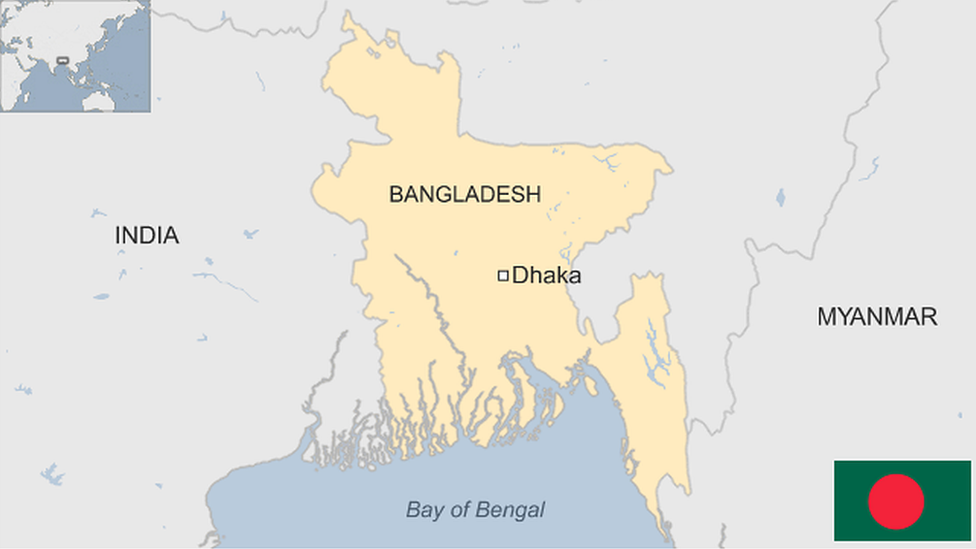Bangladeshi girl may be first female with 'tree man syndrome'
- Published
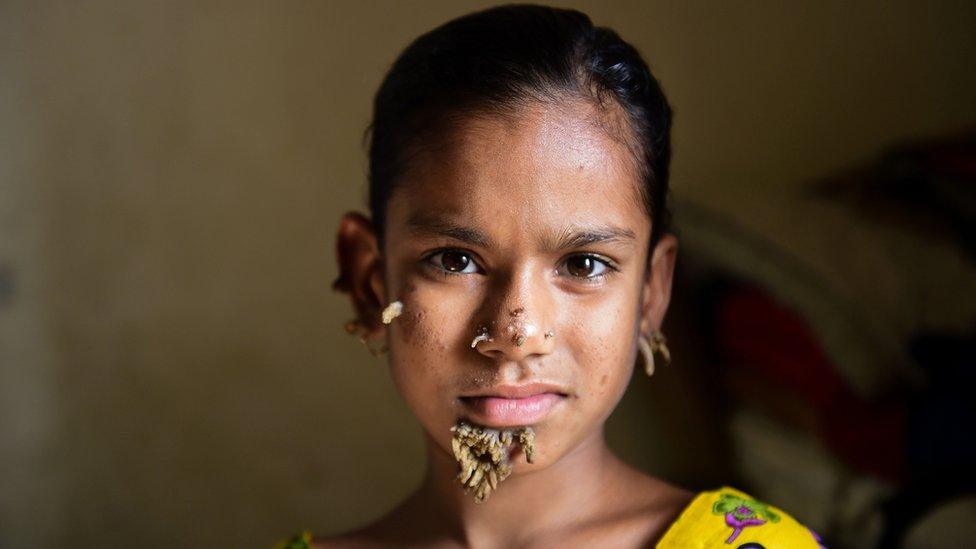
Doctors hope Sahana Khatun, 10, may have a less aggressive version
When a bark-like wart grew on 10-year-old Sahana Khatun's face four months ago, her father was not worried.
But after they began to spread, he became more concerned, travelling south from his village to the Bangladeshi capital Dhaka to get medical help.
Now doctors fear Sahana may be the first female to ever be afflicted by so-called "tree man syndrome".
If their diagnosis is right, she becomes one of a tiny group worldwide with epidermodysplasia verruciformis.
It is a rare genetic disease that produces scaly, bark-like growths which particularly affect the hands and feet.
Only a few people - all men - are thought to have the disease.
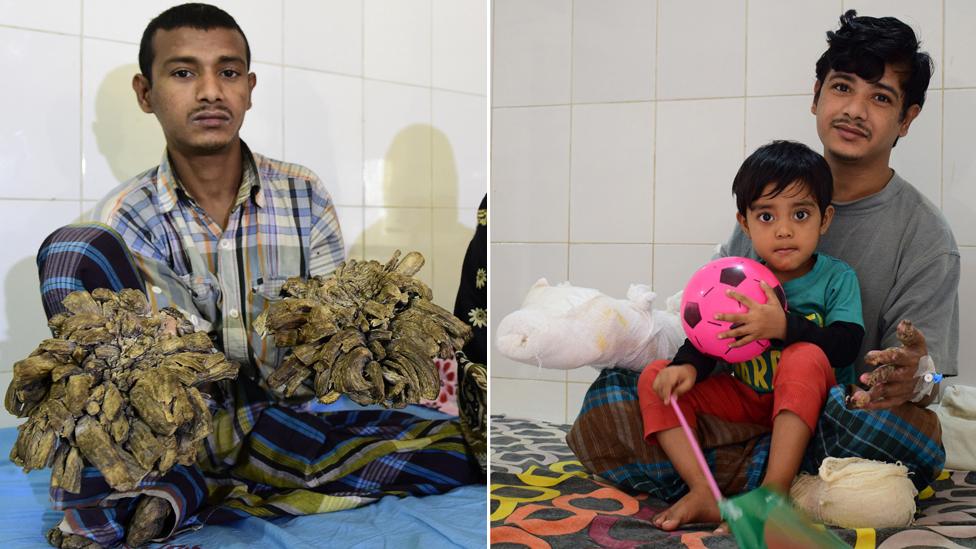
This time last year Abul Bajandar was heavily suffering from the syndrome (left) but today he has made a full recovery and can hold his child (right)
For some, it is incapacitating, with one man unable to touch his wife and child for a decade.
Abul Bajandar's hands were each consumed by growths which weighed 5kg (11lb), with warts also growing on his legs, giving him the appearance of a tree.
The 27-year-old, who was the first Bangladeshi diagnosed with the disease, has now undergone 16 separate surgeries at Dhaka's Medical College Hospital to allow him to use his hands once more.
Doctors told the AFP news agency last month that he would soon be able to leave the ward - and those same doctors are now conducting tests to establish whether Sahana has the same unusual skin disorder.
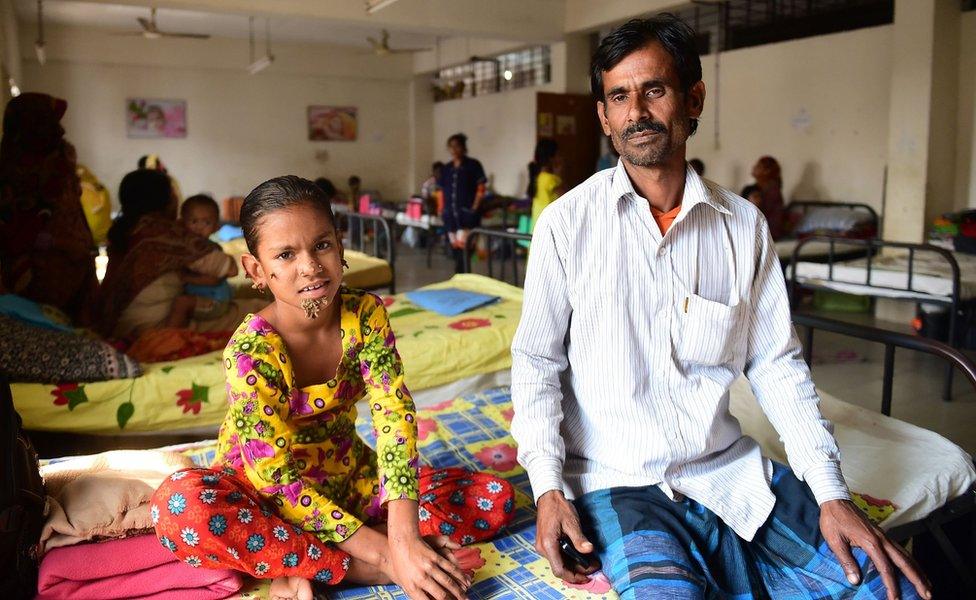
Sahana's father Mohammad Shahjahan hopes doctors can help his daughter
For her worried father, Mohammad Shahjahan, it is little comfort.
"We are very poor. My daughter lost her mother when she was only six. I really hope that the doctors will remove the barks from my beautiful daughter's face," he told AFP.
Doctors are hopeful Sahana may have a less aggressive version of the illness and should be able to recover more quickly.
- Published4 February 2016
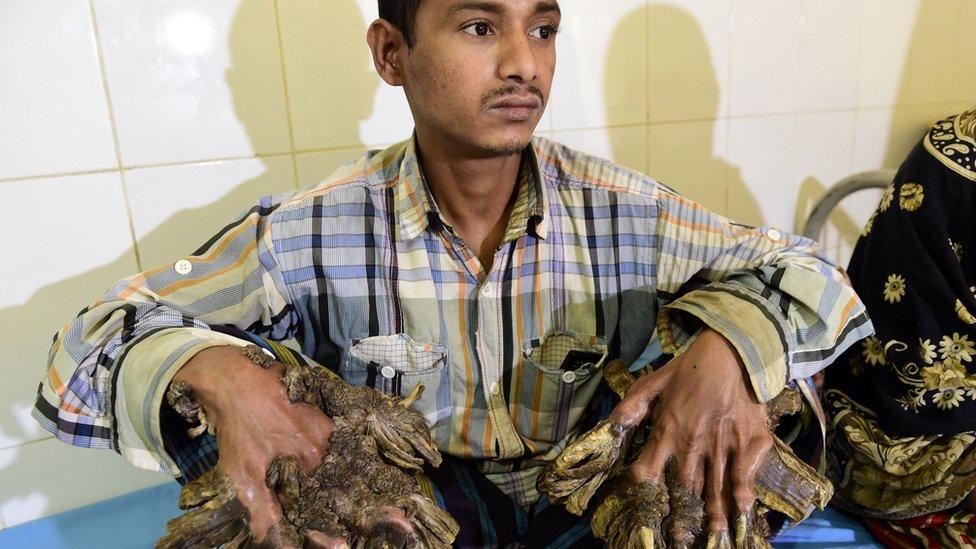
- Published10 March
